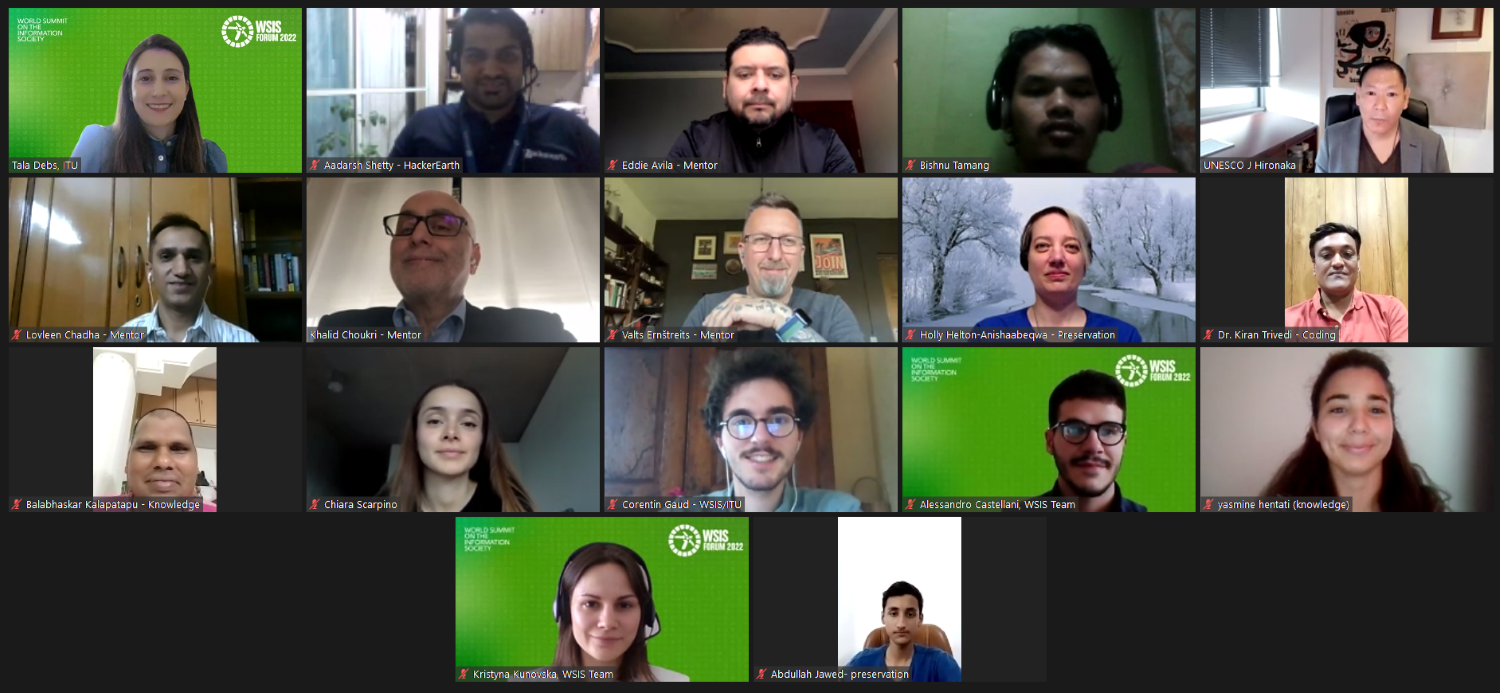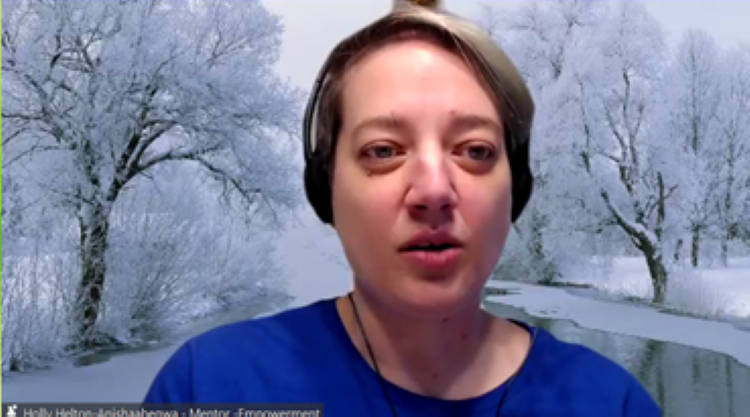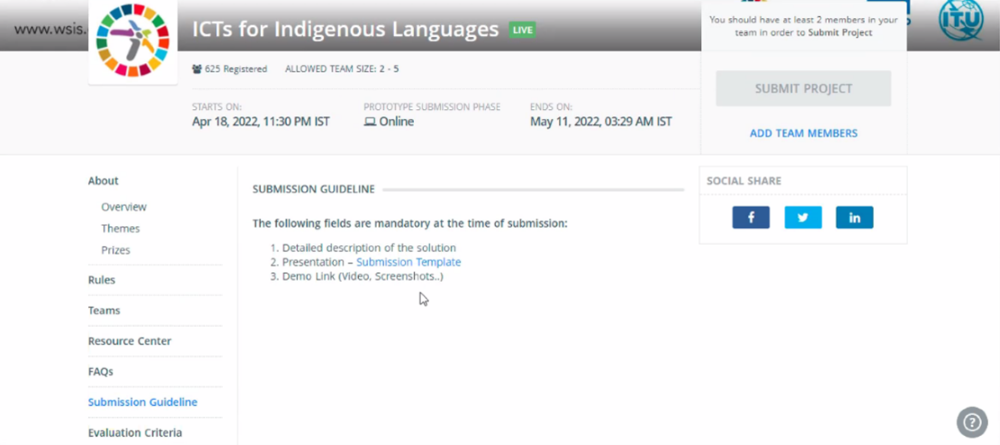WSIS Forum 2022 Hackathon: ICTs for Indigenous Languages - Mentoring Session 2
WSIS
Session 333
More information on the hackathon is available here: https://icts-for-indigenous-languages.hackerearth.com/
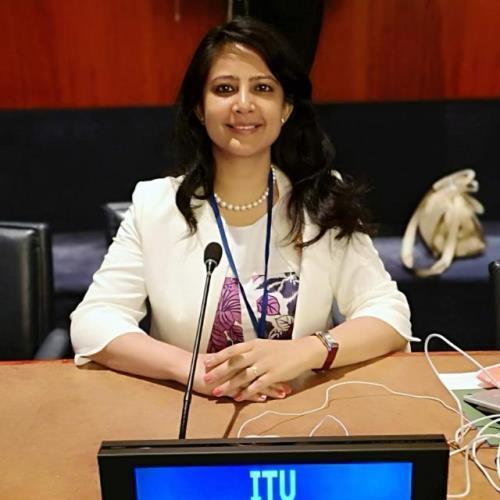
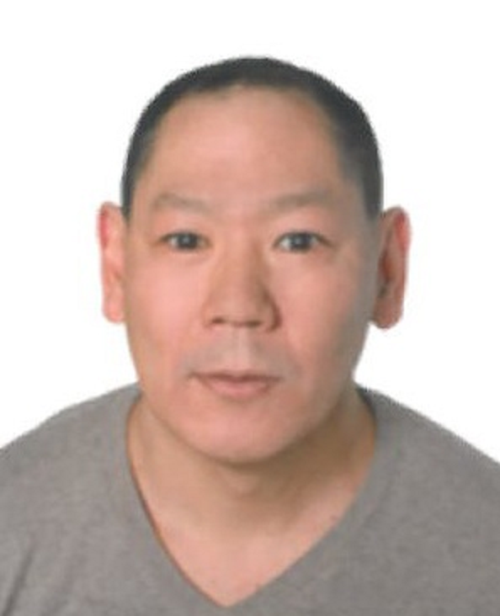
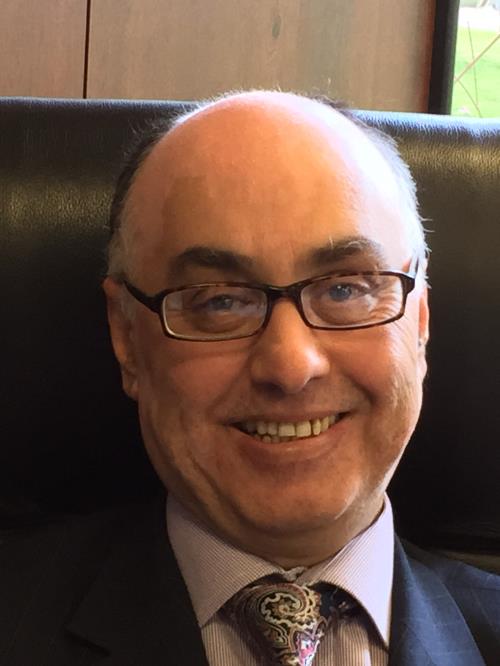
Since 1995, he has been the Chief Executive Officer of the European Language Resources Association (ELRA; www.elra.info) and the Managing Director of its distribution agency, ELDA (www.elda.org) . In this capacity, Khalid Choukri managed a large number of national and international projects on all issues related to language resources (identification, sharing/distribution, production) and technology evaluations. ELRA/ELDA was/is involved in some of the major European projects related to production of new resources (e.g. SpeechDat, Speecon, Speechdat-Car, Oriental, Lila, Technolangue-Evalda, TC-STAR, CHIL, CLEF, Panacea etc.) as well as projects promoting the language technology field (EuroMap/Hope, Enabler, FlareNet, META-NET/T4ME, ELG, ELE, etc.). ELRA/ELDA is the co-organizer of LREC, which is the main event in LRs Evaluation of HLT field, set-up in 1998 and attracting more than à thousand participants from all over the world.
Dr. Khalid Choukri has been also involved in ISO and other standardisation activities. Dr. Choukri has been the ISO JTC1/ SC 35 (User interfaces) chair, since 2012, which is responsible for a large area of activities focusing on accessibility of ICT and their user interfaces. Such interfaces cover input modalities such as keyboard standardization, use of tactile keyboards with various gesture possibilities, use of speech commands, exploitation of emotions in the design of interfaces. It also cover speech to speech translation, easy-to-read/easy-to-understand issues and all linguistic requirements to make ICT devices and services accessible to all users, in particular those with specific needs.
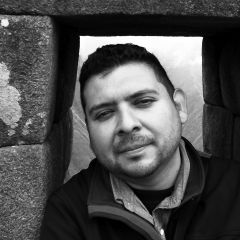
Eddie Avila is the Director of Rising Voices the digital inclusion arm of the organization Global Voices This global initiative provides training, mentoring, and network-building with marginalized and underrepresented communities seeking to utilize the internet and digital media to fully participate online and express themselves by telling their own stories. In addition, Rising Voices has a special focus on engaging with networks of indigenous, minority, and endangered language digital activists in Latin America, Sub-Saharan Africa, South and Southeast Asia, and North America that are leveraging digital technologies to promote their language and culture online.
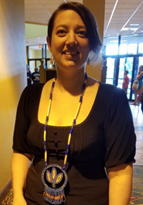
Holly Helton-Anishinaabeqwa, descendant of St. Croix Band of Lake Superior Chippewa from Wisconsin, United States of America, and a member of the Marten clan. As an indigenous youth growing up, I was never taught my language, due to the acts of assimilation and threat of boarding schools in my great-grandmother’s day. Today, my family is trying to revitalize the use of Anishinaabe in our household.
My Anishinaabe name is “Ogichidaakwe”, which means “Woman Who Speaks for the People”. I currently work for the Global Indigenous Languages Caucus to help Indigenous communities to preserve/revitalize their languages by setting up language programs. I’m currently learning my language Anishinaabe, as well as teaching my two sons. I’m a graduate of UW-Milwaukee with a bachelor’s degree in Anthropology with an emphasis on International relations and Indigenous Issues and working towards completing a master’s degree.
Reference: https://rising.globalvoices.org/blog/2019/06/19/meet-holly-helton-anishinaabeqwa-the-host-of-the-nativelangstech-twitter-account-for-june-20-26/
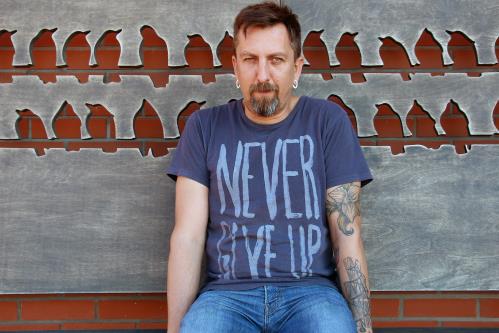
Dr. phil. Valts Ernštreits (1974) is the director of the University of Latvia Livonian institute and culture policy advisor to the minister of culture of the Republic of Latvia. For decades he has been involved in revitalization efforts of the Latvia’s indigenous language and one of the most endangered languages in the world – Livonian. Being Livonian himself he has been involved in numerous activities of safeguarding and developing Livonian cultural life and widening the possibilities of the use of Livonian. He has also advocated Livonian heritage and language in state and municipal level and promoting Livonian heritage in educational institutions, general public and Livonian community. Valts Ernštreits’ research interests include the building of digital resources and developing approaches for the research, safeguarding, and providing accessibility to the Livonian language and culture sources, as well as lexicography, language standardization and intangible heritage.
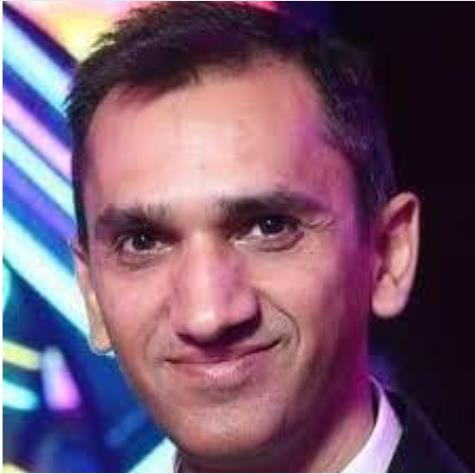
Lovleen Chadha is currently a Data Value Manager at Nokia. An AI & Analytics evangelist, he is leading the Algo-Augmented Category Manager program at Nokia’s Strategic Sourcing.
Designed Nokia’s AI/ML skill building programs
AI-Aware-Employee (Machine learning bootcamps for employees with Zero Maths, Zero coding experience)
DIGITALIST (9-month program for Citizen Data Scientists)
PMP, Lean Six Sigma Green belt, Certified Nokia Coach
Design Thinking practitioner
50 invention submissions resulting in 20 patent fillings (400+ citations by Apple, Google, Microsoft, Samsung, Intel, IBM, Qualcomm & others).
Topics of Interest : Role-centric AI transformations, Data literacy, User Experience
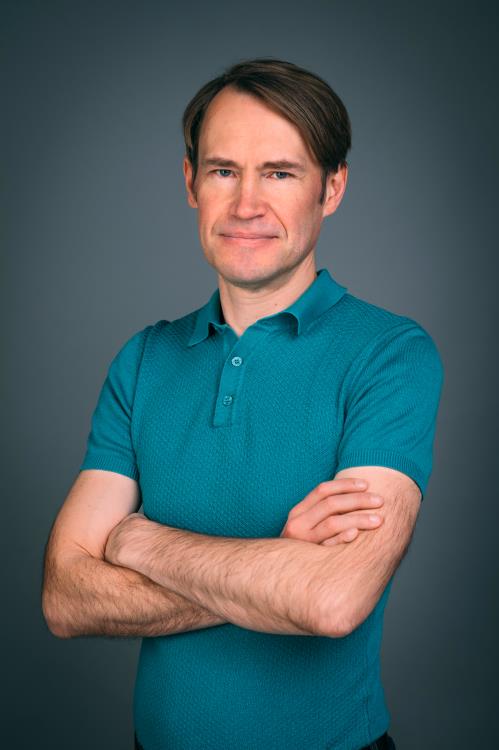
Dr. phil. Sven-Erik Soosaar is a linguist working as a senior researcher at the Institute of the Estonian language. He has studied in the University of Tartu, University of Konstanz, University of Helsinki and University of Greenland. His research areas are etymology, lexicology and historical linguistics. Soosaar has been for two decades active in the Finno-Ugric movement advocating the development of indigenous Finno-Ugric languages spoken in Russia. Currently he is a member of the United Nations Permanent Forum on Indigenous Issues.

-
 C2. Information and communication infrastructure
C2. Information and communication infrastructure
-
 C3. Access to information and knowledge
C3. Access to information and knowledge
-
 C4. Capacity building
C4. Capacity building
-
 C7. ICT applications: benefits in all aspects of life — E-learning
C7. ICT applications: benefits in all aspects of life — E-learning
-
 C8. Cultural diversity and identity, linguistic diversity and local content
C8. Cultural diversity and identity, linguistic diversity and local content
-
 C10. Ethical dimensions of the Information Society
C10. Ethical dimensions of the Information Society
-
 C11. International and regional cooperation
C11. International and regional cooperation
-
 Goal 2: End hunger, achieve food security and improved nutrition and promote sustainable agriculture
Goal 2: End hunger, achieve food security and improved nutrition and promote sustainable agriculture
-
 Goal 4: Ensure inclusive and equitable quality education and promote lifelong learning opportunities for all
Goal 4: Ensure inclusive and equitable quality education and promote lifelong learning opportunities for all
-
 Goal 6: Ensure access to water and sanitation for all
Goal 6: Ensure access to water and sanitation for all
-
 Goal 8: Promote inclusive and sustainable economic growth, employment and decent work for all
Goal 8: Promote inclusive and sustainable economic growth, employment and decent work for all
-
 Goal 10: Reduce inequality within and among countries
Goal 10: Reduce inequality within and among countries
-
 Goal 11: Make cities inclusive, safe, resilient and sustainable
Goal 11: Make cities inclusive, safe, resilient and sustainable
-
 Goal 12: Ensure sustainable consumption and production patterns
Goal 12: Ensure sustainable consumption and production patterns
-
 Goal 13: Take urgent action to combat climate change and its impacts
Goal 13: Take urgent action to combat climate change and its impacts
-
 Goal 14: Conserve and sustainably use the oceans, seas and marine resources
Goal 14: Conserve and sustainably use the oceans, seas and marine resources
-
 Goal 16: Promote just, peaceful and inclusive societies
Goal 16: Promote just, peaceful and inclusive societies
-
 Goal 17: Revitalize the global partnership for sustainable development
Goal 17: Revitalize the global partnership for sustainable development
